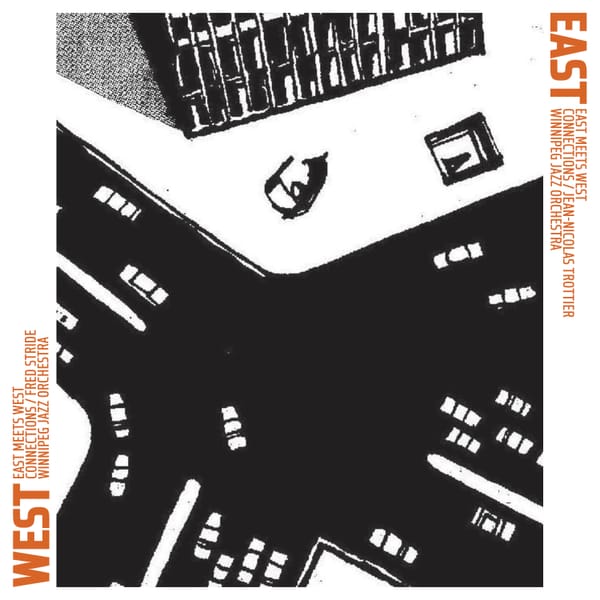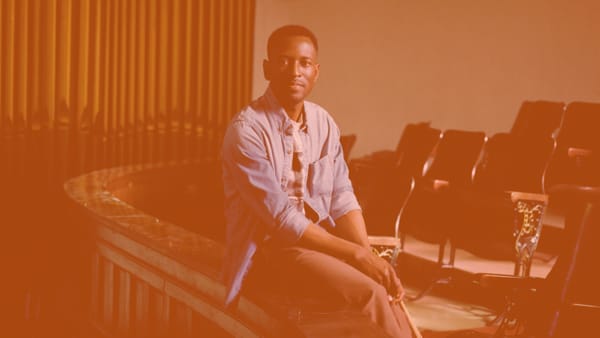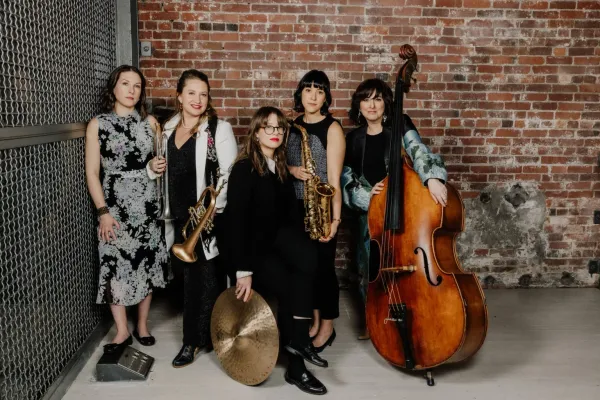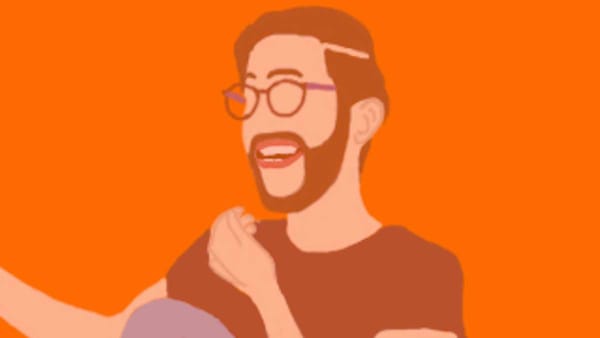"Big Things Coming": recovery from the pressure to create
I'm calling for unfettered, weird creation with no expectation that anyone needs to see it.
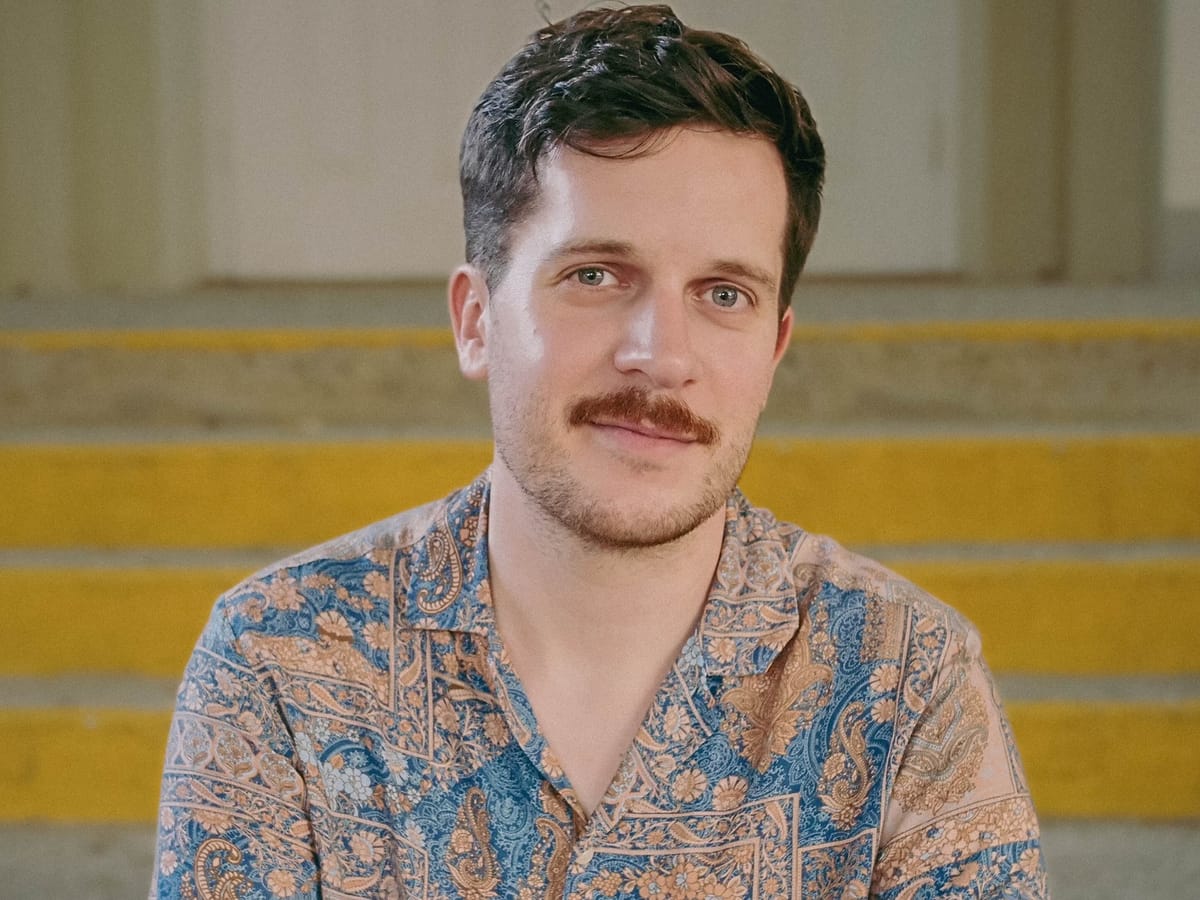
This winter, by some heady combination of New Year’s goal-setting and reflection on the past couple years, I decided to take some deliberate steps out of the creative slump I’d been experiencing. It was a positive development, but what immediately followed was a dark urge: I should post something. Artists post.
That impulse troubled me. Has artistic life become so consumed by and intertwined with social platforms that you’re required to engage with them? The conclusion I reached is no, not really, but social platforms and the institutions around them would really prefer if you believed it. Even though these platforms claim to offer vast benefits to you, the benefits are likely not worth the cost of admission. Extended use and dependency on these platforms is counter to art-making, and we’d be better served by stepping back from our newfound side gig as ‘content creators’.
If a beat drops in the forest
B I G T H I N G S C O M I N G
The platforms incentivize what I call productivity exhibitionism: the ‘big things coming’ effect. People perceive your productivity through a lens of how much you’re posting about your work, and the spectacle of artistic practice overtakes the actual work. If nobody sees that I’m on my Sigma Grindset at the studio, what am I there for?
The exhibition comes in the form of infamous ‘big things coming 🔥…’ posts which often result in zero things coming, practice videos, performative re-posting of other artists’ stories, and many other things that go into the busywork of being a creative online.
We sell this sort of performance to ourselves as brand-building, myth-making, pretending that the few dozen people who watched the Instagram story are murmuring to each other in the DM’s, “The absolute legend, what are they up to this time?” It is, of course, ridiculous. The pressure to post comes from the platform, not from people asking you to do it, but it’s persistent and difficult to ignore. That’s the IG Panopticon: you don’t know who’s watching, so you might as well post as if everyone is.
The IG panopticon has the cumulative effect of:
- Magnifying people in your network who find some success on digital platforms.
- Making participation in the platform seem appealing.
- Getting you to imagine that you have an audience of people who perpetually wonder, “What are they up to???” if you don’t post frequently.
- Causing you to compare yourself with the apparent success stories you see in the platform, demotivating you from further participation.
The IG Panopticon is a great thing for the platform as it helps drive engagement, but it’s much less good for you and I. The constant comparisons are not only unproductive, they’re downright unhealthy. If you’ve ever scrolled through videos of people absolutely shredding on their instrument, you’ve no doubt thought, “I should really be practicing” — as you continue scrolling. (Better folks than I will actually put the phone down and practice for a while, leveraging the burst of inadequacy to squeeze in another hour of time on the instrument.) Is this actually constructive, though? Eventually, the nuclear levels of psychic damage your self-esteem takes from the app will outpace any gains you get from mainlining motivational content from Jesus Molina or Joey Alexander or Jacob Collier — Is there something with ‘J’ Names here?
We are the customer
In a tweet posted long ago that I can no longer find, the artist Mat Dryhurst made an observation that went something like:
The “independent music industry” has long figured out that artists will pay much more money to try to make themselves famous than audiences will ever pay for the music
It’s probably clear to you already: how much money did your last release make? How much are you willing to invest into the next one? Do you ever expect to break even? If you’re like me, your answer is a shrug. We’re in it for love of the game; the financial returns don’t really matter.
The expenses are the cost of doing business, and opting out wouldn’t really feel fulfilling. We spend money on Submithub credits to get our music heard by reviewers. We pay distributors to put our music on streaming platforms that will pay us next to nothing, sometimes even offering to further diminish that paltry amount for a small algorithmic boost. Here, an entire cottage industry has grown, from services that promise to get you playlisted to social media gurus offering to ‘optimize your presence’. Heck, most of the blogs that ‘review’ your music exist not for any prospective fans but for advertising, with traffic driven by DIY musicians who gaze at their own reviews like Narcissus into a pond.
We are not the partners of these platforms that purport to value our partnership, we are their customers. I mean this in a literal sense: It became a Web2.0 truism that “if you don’t pay for a service, you’re not using the product, you are the product.” It goes for you as an end-user of the platforms as well as for all artists, as we post our way into middling careers as content creators.
On top of being the product, we are customers in the same way that any other advertiser is a customer. The value chain here is a bit weird to parse, but goes something like this: Meta’s product is advertiser eyeballs; they have a ton to sell and are very good at finding the right eyeballs for each ad. Companies pay Meta for placement in your feed; likewise, content creators engage with Meta as a customer, but instead of trading cold hard cash for eyeballs they provide the content that fills the platforms — while still acting as end-users of the product so that their eyeballs can be sold to other advertisers.
This is an important distinction: the person(s) running the social media account for, say, Wendy’s almost certainly does not spend time scrolling while logged in to the Wendy’s account, but you scroll on your own ‘artist’ account as an end-user of Instagram. Meta extracts double value from your engagement on the platform: you are the customer and the product, which changes the calculus of whether it’s worth it to you to continue engaging with the platform.
The message from the platforms to you as an end-user is pretty straightforward: they offer you a trade of entertainment in exchange for some of your attention so that they can show you ads. Although it ends up arguably costing more in attention and long-term mental wellbeing than the platforms initially let on, the offer is simple enough
Artists, however, get a different and much more murky deal. If you spend your time, post your art, build your community, build your brand on our platform, it could turn into a genuine career opportunity for you. ‘Creator’ could become your job. This could make your artistic practice commercially viable! Who could say no to that?
I believe there was a time, maybe even as recently as five years ago, when that offer was fairly legitimate. The algorithms could be fickle, but if you learned a few tricks, posted consistently, and worked hard to build your craft as a content creator, you could grow a following and leverage it into career opportunities for yourself. There are success stories in our scene who dug into the Instagram game and were able to turbo-charge their careers, at least for a time.
The catch
There are a few main problems with this model. First, it doesn’t really work anymore. Are you close to a person who had a moment of insta-fame? Ask them how they feel it’s going now. The algorithms have gone from somewhat slippery and confusing to completely opaque.
As a layperson and not a machine learning expert, I would guess that this shift is due to the increased maturity of these algorithms. The old tricks like writing a long description, using multiple hashtags, and posting every day worked only because the relative unsophistication of these algorithms (compared to now) meant their behaviour was a lot more legible. Today, these algorithms factor in so many more inputs than we could ever know and include factors that are completely out of the posters’ control, like the amount of time users spend staring at a post, the percentage of users that just flip past the post without looking, and more.
Growth is no longer inevitable; your content gets promoted and demoted with no rhyme or reason, and as the algorithms get more sophisticated in their ability to capture attention, they become more byzantine and impossible to predict. Literally no one at Meta, YouTube, or TikTok could, with any degree of certainty, explain why one of your posts does well and another does not.
This is a weird reality - isn’t Meta the Eyeballs Supplier? If we are the customer, why is this vendor so shoddy at reliably supplying eyeballs to us? Having done a small amount of vendor management during my work in the corporate world, I’d say that supplier as unpredictable as Meta’s Eyeball Emporium would get dropped quickly, as soon as it became clear that they were unwilling or unable to supply the product with any consistency.
The thing is, while we are technically a customer, we are a second-rate customer to Meta: a prospective client for their actual lucrative business of paid ads. Does Meta really have an incentive to provide a clear, legible, and reliable algorithm to its ‘freemium’ customers when it would much rather have you cough up the money for a sponsored post? (The quality, affordability, and reliability of sponsored posts are a bit outside the scope of this article; they are another can of worms).
So the platform game has turned into a giant slot machine: why not keep pulling that lever? The second problem is the elusive prize itself: even if you hit the jackpot, it has become nearly impossible to leverage that attention into any legitimate career opportunity or financial gain. With respect to engagement, we’re like the dog chasing the car: what will we do if we catch it?
Think about it: Imagine you post a video of yourself playing and it goes supernova. To keep things realistic relative to the scale of our scene, let’s say you receive tens of thousands of likes on a post. Maybe your follower count jumps into the 30-50k range over the span of a month or two, and your next couple posts enjoy a hefty algorithmic boost from the viral success of the one hit. Then what?
In the best-case scenario, maybe your gig prospects open up a bit. Maybe an independent record label reaches out for a conversation. Maybe you get approached by an artist manager. Maybe a bigger artist or their team reaches out for a collaboration.
These are big maybes, but even so, what then? A track that gets 1 million streams might generate about $3000 today on Spotify — much of which will go to a label if you have one — and all the time you spent on making that song, not to mention the content that got you the attention, won’t be even close to being recouped.
Even in the unlikely event that your success helps you break into the big leagues of being a content creator/influencer, the bad news is that being a full-time creator seems to be actually not a great job. Look at the trend of YouTube retirement, the myriad creators who confess to feeling burned-out and undervalued — and, at the end of the day, not particularly renowned among their less internet-pilled colleagues.
I recognize this is a pretty cynical take on the situation, but things are rough out there, and I hope my point comes across: The grand prize of all this posting is an empty promise. Yes, a viral video would feel great and definitely boost your profile, but it wouldn’t do much for you in a concrete way.
The last major problem with the Content-Creator-As-Career-Path model is, remember, you are still The Product, the same as any end user. You’re not protected from the psychological harms of using these platforms. in fact you’re more likely to get sucked into the dopamine loop of post -> receive likes -> post because this is now your job. The loop has the most harmful effect on creative work; posting begets posting begets posting, and no actual music gets made. All of the posturing, all of the Big Things Coming, all the weight of the IG Panopticon has a suffocating effect when it’s time to actually sit down and work on your art. I’m sure even the most ruthlessly self-disciplined and well-adjusted artist has felt it.
No matter how much you feel like a partner of any given platform, the platform won’t ultimately see it that way. To them, you are just a whale of an end-user with the added bonus of providing them the content they use to fill the platform for free.
Sure
we all know the industry is broken, so what?
The point of all this grouchiness is not to discourage, but rather liberate you with a sort of emperor-has-no-clothes revelation. If content is not an avenue to professional fulfillment, then poof! It no longer has to be a job. You don’t need to force yourself to post every day of Jamuary, you don’t need to spin up a brand new account for every side-project you start, you don’t need to do anything.
Shitpost your way through life if you want, keep doing whatever you’re doing if it brings you joy. But in case it doesn’t bring you joy, then be free! Fully opt out, log off, make your songs, and send them to your friends in voice memos, Discord channels, or private Soundcloud links. I’m calling for an era of unfettered weird creation with zero expectation for anyone to see it.
A major caveat is, of course, to keep doing whatever you feel is working. If you think posting your gig calendar to your stories is helping attendance, keep doing it. I believe some of that stuff is still valuable for a lot of people, and we all need all the help we can get.
The main thing I want to push back against, though, is the idea that we all must be content creators with an online brand in order to succeed. It has become so pervasive among the arts community, and yet it clearly is bullshit. Talk to your most successful artist friend; I’m willing to bet they got their most important paid work through friendships, professional connections, and patience. Those relationships, not a sudden smash hit on TikTok, would then open up income streams which fork into further income.
Are you tempted to point out that I myself am not immune from Posting Disease? I don’t want my point to be misinterpreted as a call to completely disengage and turn it all off. (Although if you feel like you should, absolutely go for it!)
For me, what changed is that I no longer see engaging with these platforms as a means to an end. If I post, it’s because I want to show a thing to my friends, not as a performance of brand-building or productivity.
In Jenny Odell’s book How to Do Nothing — a great read about being a creative person existing in, and resisting, the attention economy — Odell suggests a gentle refusal when we are presented with terms that aren't agreeable to us: “I would prefer not to.” The phrase is borrowed from Herman Melville’s book Bartleby the Scrivener, in which the titular character refuses to comply with any demand from his employer, responding simply, “I would prefer not to.”
This carries on to some absurd lengths, but part of Odell’s point in How to Do Nothing is that such a refusal is a powerful disarming act. It doesn’t invite argument or negotiation, it doesn’t engage with the requester, it just shuts it all down, enabling the resistor to carry on whatever it is they would prefer doing.
At times when you find yourself pressured to be a multi-hyphenate artist/marketer/entrepreneur/advocate/video editor/photographer, consider making like Bartleby and choosing to say, “I would prefer not to.” Free yourself to focus on the areas of your craft that actually matter to you and bring you fulfillment. If enough artists begin to opt out, politely decline, tune out the siren song of the IG Panopticon, I have hope that the market will come up with alternative prevailing means for people to interface with and compensate artists. Our absence from platforms will become conspicuous, and I don’t think they’ll be able to just replace us all with AI yet. I don’t have a firm prescription of what would improve things, but I believe that we must all strive to make great art, that we deserve to treat ourselves with dignity, and that quiet acts of resistance can amount to powerful change.

